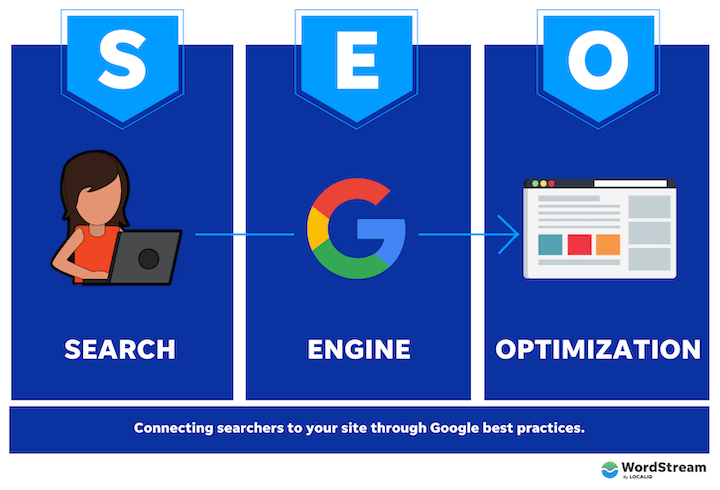Okay, here are 5 ways to improve SEO in 2025, based on current trends and projected future developments:
1. **Hyper-Personalized and Contextual Content Optimization:**
* **Why:** Search engines will continue to prioritize user experience above all else. This means not just generic, keyword-stuffed content, but content tailored to the individual user’s intent, location, past behavior, and the context of their search (device, time of day, immediate needs).
* **How to Optimize:**
* **Invest in User Data Analysis:** Use analytics to deeply understand your audience segments, their needs, and their preferred content formats.
* **Dynamic Content Adaptation:** Employ technologies that allow your website to serve different content based on user location, browsing history, and even real-time contextual signals (e.g., weather, current events).
* **Semantic Keyword Research:** Go beyond simple keyword targeting. Focus on understanding the *meaning* behind search queries and addressing the user’s underlying needs with comprehensive, informative content.
* **Predictive Search Optimization:** Anticipate user needs *before* they even search. Use predictive analytics to identify emerging trends and create content that answers questions before they are explicitly asked.
2. **AI-Powered SEO Automation and Analysis:**
* **Why:** AI will become even more integral to SEO, automating repetitive tasks, providing deeper insights, and enabling more efficient campaign management.
* **How to Optimize:**
* **Implement AI-Driven Keyword Research Tools:** Use AI to uncover long-tail keywords, identify content gaps, and discover emerging search trends.
* **Automate On-Page Optimization:** Leverage AI to analyze your website’s structure, identify technical SEO issues, and suggest improvements for site speed, mobile-friendliness, and schema markup.
* **Content Optimization with AI:** Utilize AI-powered tools to analyze your content’s readability, tone, and engagement level, and provide recommendations for improvement.
* **AI-Based Link Building Analysis:** Use AI to identify high-quality link opportunities and analyze the link profiles of your competitors.
* **Sentiment Analysis and Brand Monitoring:** Use AI to monitor online conversations about your brand, identify potential reputation issues, and adjust your SEO strategy accordingly.
3. **Voice Search and Conversational AI Integration:**
* **Why:** Voice search and virtual assistants will continue to grow in popularity. Optimizing for voice search means understanding how people formulate questions and providing concise, direct answers. Conversational AI allows for more interactive and personalized experiences.
* **How to Optimize:**
* **Focus on Long-Tail Keywords:** Optimize for natural language queries that are typically used in voice searches.
* **Create Question-Answer Content:** Develop content that directly answers common questions related to your industry or product. Use structured data (schema markup) to help search engines understand the context of your answers.
* **Optimize for Local Search:** Voice searches are often used to find local businesses. Ensure your Google My Business profile is complete and accurate.
* **Implement Conversational AI Chatbots:** Use chatbots to answer customer questions, provide product information, and guide users through the purchase process. Optimize chatbot interactions for search engine visibility.
* **Think About Intent, Not Just Keywords:** Understand the intention behind the questions being asked, and provide content that satisfies that intent in a clear and concise manner.
4. **E-E-A-T as a Paramount Ranking Factor (Experience, Expertise, Authoritativeness, Trustworthiness):**
* **Why:** Google has emphasized E-E-A-T as a critical ranking factor. In 2025, this will be even more important. It’s not just about having good content, but proving that you are a credible and trustworthy source of information.
* **How to Optimize:**
* **Demonstrate Experience:** Highlight your real-world experience and accomplishments. Share case studies, testimonials, and examples of your work.
* **Showcase Expertise:** Create high-quality, in-depth content that demonstrates your knowledge and understanding of your field. Feature expert contributors and thought leaders.
* **Build Authority:** Earn backlinks from authoritative websites in your industry. Participate in industry events and conferences. Get mentioned in reputable publications.
* **Establish Trustworthiness:** Be transparent about your business practices. Provide clear contact information. Secure your website with HTTPS. Address customer concerns promptly and effectively. Implement strong privacy policies. Focus on accurate and unbiased information.
* **Ensure Accuracy of Information:** Fact-check all content meticulously. Cite your sources and provide evidence to support your claims.
5. **Visual and Immersive Search Optimization:**
* **Why:** Visual search (using images to find products or information) and immersive experiences (augmented reality, virtual reality) will become more prevalent.
* **How to Optimize:**
* **Optimize Images for Search:** Use descriptive file names, alt text, and captions. Ensure your images are high-quality and relevant to your content.
* **Implement Schema Markup for Images:** Use schema markup to provide search engines with more information about your images, such as product details, pricing, and availability.
* **Create Visual Content:** Invest in high-quality videos, infographics, and interactive content.
* **Explore AR/VR Opportunities:** Consider how you can use augmented reality and virtual reality to enhance the user experience on your website or in your marketing campaigns. Optimize your AR/VR experiences for search engine visibility.
* **Optimize for Visual Search Engines:** Research the specific requirements of visual search engines like Google Lens and Pinterest Lens.
**Important Considerations:**
* **Mobile-First Indexing Will Be Fully Embedded:** Your website *must* be fully optimized for mobile devices.
* **Page Experience Remains Crucial:** Site speed, responsiveness, and visual stability are essential for a positive user experience.
* **Stay Updated:** SEO is constantly evolving. Keep up with the latest trends and best practices by following industry blogs, attending conferences, and experimenting with new technologies.
By focusing on these five areas, you’ll be well-positioned to improve your SEO and achieve your online marketing goals in 2025. Remember that SEO is a long-term strategy that requires ongoing effort and adaptation. Good luck!


